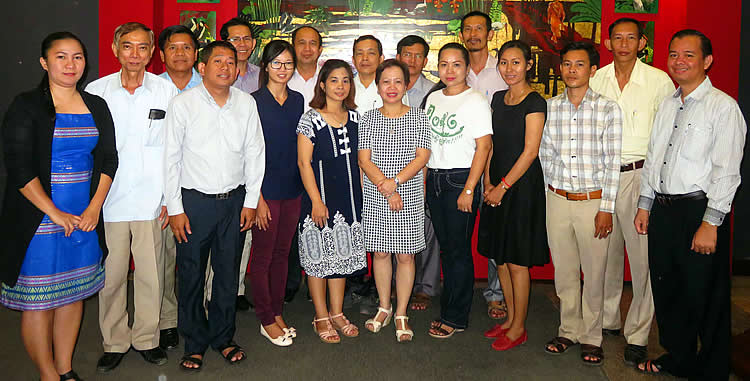Cambodia’s proposal aims to contribute to the improvement of CF implementation in the country by looking at the gaps between policy and practice via a case study in the provinces of Kampot and Kampong Thom. Community Forestry (CF) Management in Cambodia was introduced as early as mid-1990s through many pilot projects supported by the Government of Cambodia and international and national organizations. Various policies and regulations were developed and are currently being implemented including the 2010 National Forestry Program (NFP) consisting of six programs, which include community forestry (CF). The three main activities under CF are: (1) community forestry identification and formalization; (2) community, institutional and livelihood development; and (3) community forestry development support services. These policies and regulations support and recognize the rights of local communities living in or near forest areas, particularly in the management, protection, and use of forests in a sustainable manner. While policies and regulations are intended to offer stakeholders a standardized procedure for CF development to adopt and guide their activities, there are some gaps when these are applied in practice. Experiences from the past points out that harmonization of laws, policies, and programs supporting CF is needed in order to avoid different interpretations by practitioners. It is also important to make sure that policies and legislations reflect realities on the ground during implementation. Moreover, exploring opportunities for further advancing CF-related policies and legislations should be pursued so that future CF development will realize its promised goals and overcome challenges. Cambodia’s proposed study will endeavor to provide learnings, insights, and recommendations on these issues and bring them to the attention of key stakeholders including policy-makers.
The workshop was attended by participants from several agencies under the Ministry of Agriculture, Forestry, and Fisheries (MAFF) specifically from the Department of Forest and Community Forestry,
Forestry Administration, and representatives from NTFP-EP, RECOFTC, and from the Learning Institute in Cambodia. Mr. Long Ratanakoma, the ASFN Focal Point for Cambodia provided the context for the workshop through his presentation of the state of community forestry in Cambodia. The participants expressed their thanks to SEARCA for giving them this very rare opportunity of coming together to discuss important issues confronting community forestry in Cambodia and agree on an action that they could implement. (Amy Lecciones)
